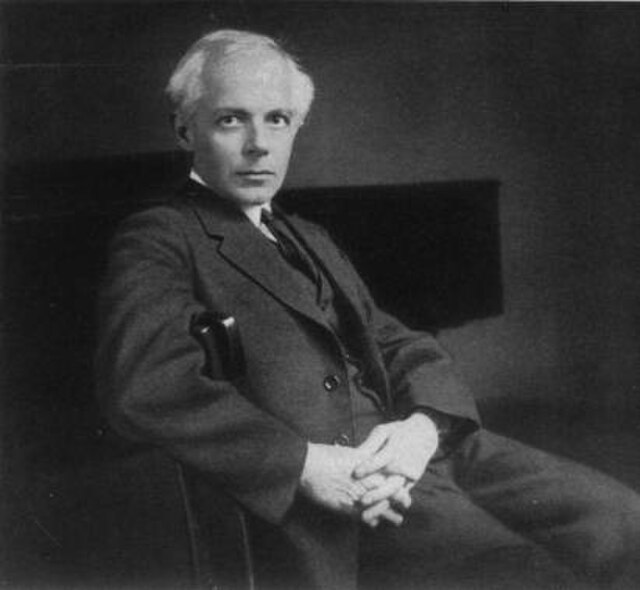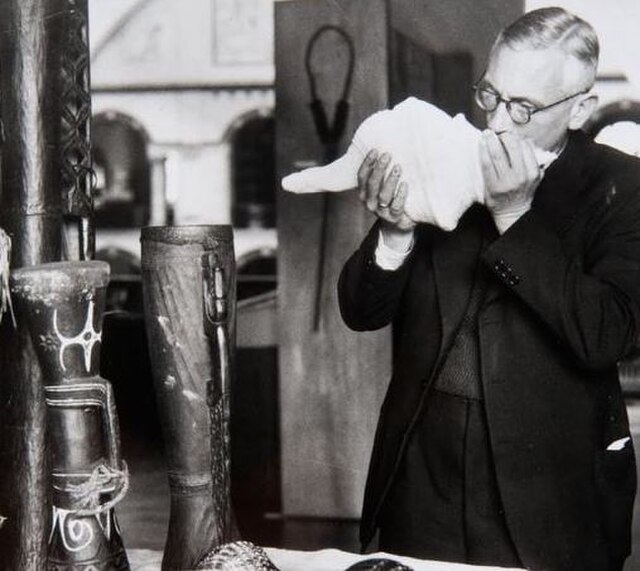Béla Viktor János Bartók was a Hungarian composer, pianist and ethnomusicologist. He is considered one of the most important composers of the 20th century; he and Franz Liszt are regarded as Hungary's greatest composers. Through his collection and analytical study of folk music, he was one of the founders of comparative musicology, which later became known as ethnomusicology.
Béla Bartók in 1927
Bartók's signature on his high-school-graduation photograph, dated 9 September 1899
Béla Bartók using a phonograph to record Slovak folk songs sung by peasants in Zobordarázs (Slovak: Dražovce, today part of Nitra, Slovakia)
Bartok and Pásztory
Ethnomusicology is the multidisciplinary study of music in its cultural context, investigating social, cognitive, biological, comparative, and other dimensions involved other than sound. Ethnomusicologists study music as a reflection of culture and investigate the act of musicking through various immersive, observational, and analytical approaches drawn from other disciplines such as anthropology to understand a culture’s music. This discipline emerged from comparative musicology, initially focusing on non-Western music, but later expanded to embrace the study of any and all different kinds of music of the world.
Jaap Kunst, early ethnomusicologist and creator of the term 'ethno-musicology', plays the Indonesian triton, beside other traditional Indonesian instruments
Frances Densmore recording Blackfoot chief Mountain Chief for the Bureau of American Ethnology in 1916
Note the number of Western and non-Western tunings that occur within the valid tuning range of the syntonic temperament.







